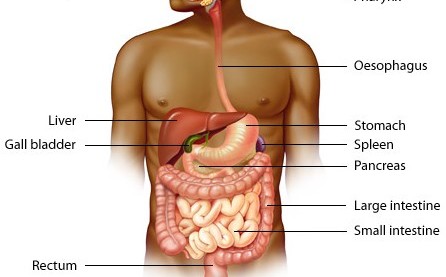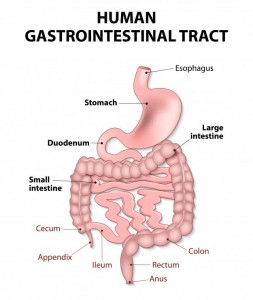What Is Stomach Cancer?
- Stomach cancer occurs when cancerous cells form in the stomach lining.
- This type of cancer usually doesn’t cause symptoms until the later stages, so it’s often not diagnosed until it’s more advanced.
- While difficult to detect, treatment for stomach cancer is possible through chemotherapy, radiation therapy, and surgery.
The stomach is the part of the GUT that follows the oesophagus/gullet. Its main function is to store the swallowed food and to regulate its flow into the small intestines where it gets digested and the nutrients are absorbed. Stomach cancer is cancer that forms in the lining of the stomach.
The incidence of cancers of the stomach vary in different parts of the world and its exact cause is unknown. Factors such as gender, age, ethnicity, diet and the bacterium Helicobacter pylori have been thought to be responsible agents.
Cancers of the stomach arise from the innermost lining of the stomach and present in different ways dependent on their location in the stomach and their pattern of growth. There are 3 variants of the disease, each with a different presentation. At the point of entry of the oesophagus with the stomach; the so called gastro-oesophageal junction, arises a type of cancer that is caused by the reflux of acid into the oesophagus. The second type is triggered by a bacterium causing gastric ulcers, the so called intestinal carcinoma. The last and most aggressive type is the signet cell cancer which often presents at a very advanced stage because of the vague symptoms associated with it.
Surgery is the only curative form of therapy for gastric cancers but because they so often are diagnosed late, a large proportion of patients relapse, so there is a need for added therapies to reduce the risk of the disease recurring. Two approaches have been tested that improve the outcome over surgery alone. The first is to use chemotherapy in an effort to prevent the disease from recurring. This approach involves administering part of the chemotherapy prior to the surgery and then administering the rest after the operation. The second is to follow the surgery with chemotherapy and radiotherapy. Both have been shown to reduce the risk of recurrence and are used in different parts of the world.
Unfortunately, in spite of all these efforts patients still recur and outcomes of treatment are poor, with patients seldom living longer than a year. The treatment options at this point are generally palliative chemotherapy in one form or another, with or without a drug called Trastuzumab, in patients who have a certain type of genetic abnormality which is tested for on the cancer cells.
The need for better therapies in the treatment of this disease is dire as our understanding of cancers as a whole is improving. The recognition that cancers are not all the same, even in the different groups e.g. gastric cancer has led research to identify potential targets that may make the treatment more specific for the disease that is being treated rather than adopting the one shoe fits all approach of the past.
Cells communicate with each other by means of releasing chemical compounds into the blood stream and they impact only on other cells that have receptors for these compounds, almost like ears that are tuned into different frequency sound waves. They respond in different ways e.g. dividing and so increasing in numbers which is what so often happens with cancers, but at a totally uncontrolled rate.
Newer forms of therapy are exploiting the recognition of this process and new drugs are being developed to improve the outcomes for patients with cancers.
Trials in gastric cancer
Pembrolizumab is a newer form of therapy whose mechanism is to block inter cellular communication and aide the body’s immune system to recognise and destroy cancer cells. This study is being done to determine the safety as well as the efficacy in patients whose gastric cancer has recurred after conventional therapy. The study drug is being compared to a current standard of care, paclitaxel.
Patients who are being considered to participate in this trial are first screened to assess their suitability. Tumour samples are sent off to be tested for markers that possibly predict sensitivity to the study drug. Tests are also done to determine the extent of the disease within the body as well as blood tests to assess the impact that the cancer or other disease you have may have impacted on the functioning of other organs like the liver and kidneys.
Suitable candidates will receive either pembrolizumab or paclitaxel as we need a benchmark to determine the efficacy of this new drug.
During your entire treatment period as well as after completion you will be assessed for potential late side effects as well as your quality of life.
If you have been treated for a cancer of the stomach which has unfortunately recurred and are interested in enrolling on this study feel free to contact us for assistance.


